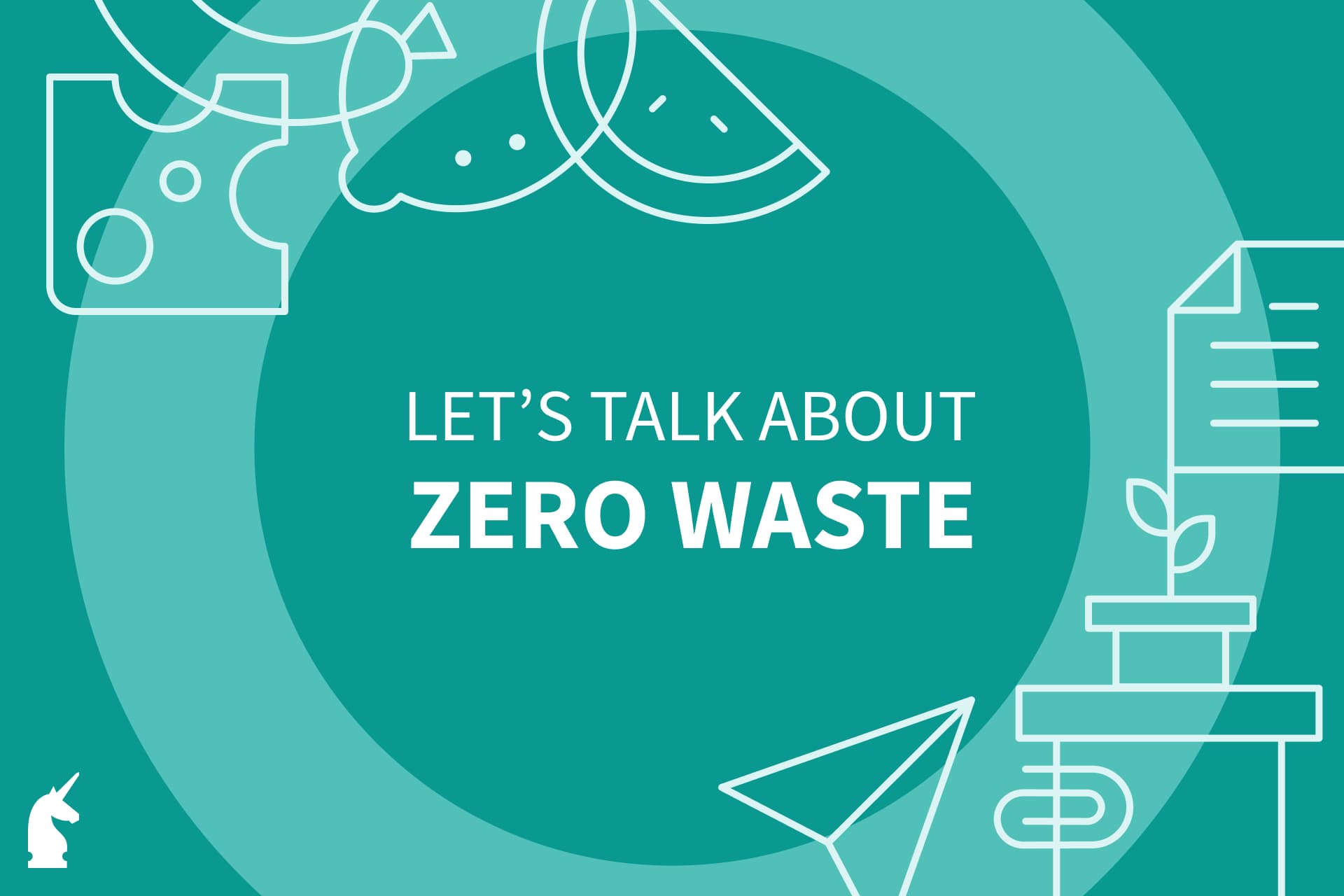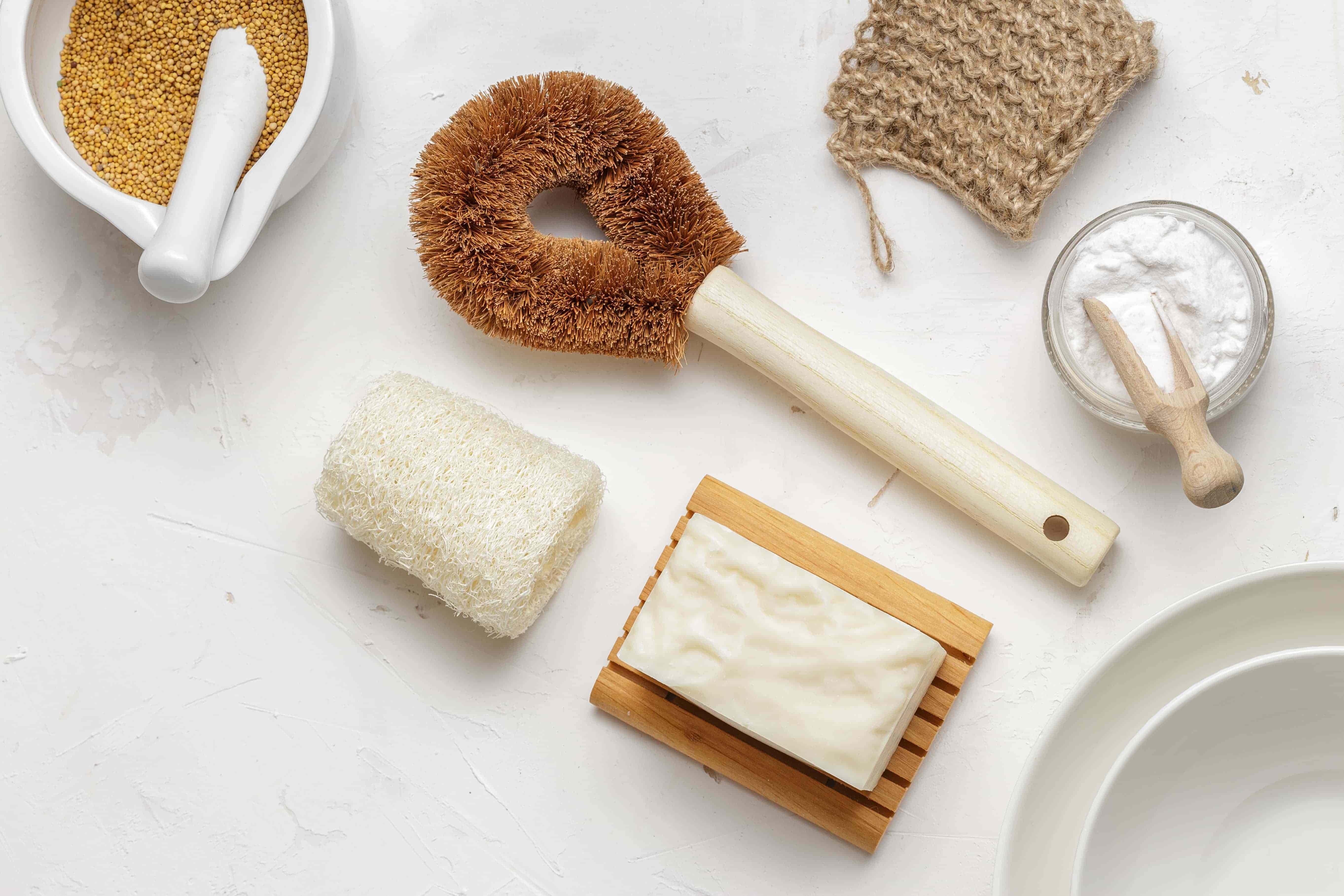The zero waste lifestyle: A tale of sorting, substituting, unicorns and recycling structures
November 1, 2021

4 min

It’s November, and we want to talk trash! Well, more precisely, about waste – sorting it, reducing it. Can we make a clean break from some of our (unknowingly) dirty habits?
Germany sorts its waste…isn’t that enough?
In 2019, an average of 457kg of household waste was produced per capita in Germany (including residual waste, organic waste, reusable materials, bulky waste and other refuse; source: Statistisches Bundesamt (Federal Statistics Office). 457kg is about the average weight of a full-grown horse – or, as we like to imagine, that of a unicorn. In 2019, Germany had a population of 83.2 million people, which means for this year in Germany alone, there were approximately 38 million tons of household waste produced – equalling the weight of 83.2 million unicorns.
The non-circular economy
Packaging waste accounted for the majority of this amount, most notably plastic and paper. What’s especially problematic is that certain materials are not recyclable, or are very difficult to recycle if they aren’t meticulously separated. So as a result, not even half of the waste produced in Germany can be reused. This is sometimes due to the nature of the material itself and inadequate sorting is also a culprit. Yet recycling is an enormously important issue, because more raw materials will be used in the future and the conservation of these already limited resources is critical.
Reducing C02 by sorting waste and minimizing its production
While proper sorting certainly aids the flow of the waste stream, consciously reducing the production of waste makes even more sense, since the creation of a massive amount of C02 can be avoided by an overall diminishing of waste production and disposal processes. At first glance, even if industry and manufacturers seem to have the most leverage when it comes to the issue of waste, they ultimately want to fulfill the standards of their consumers and will adjust their policies accordingly. Which means that every single consumer can contribute to reducing waste and C02 emissions – simply by making environmentally-friendly choices!
This November we’ll be focusing on the topic of zero waste living at Unicorn Workspaces, and we’ve got a few highlights planned throughout the month.
What’s on the agenda for November?
Every Monday we’ll be passing on excellent tips for how we can reduce waste on a daily basis. You’ll already find the first few tips towards the the next section!
Plus, with our quiz coming out on November 15th, you’ll be able to find out just how powerfully zero waste living is already impacting your daily routine.

1. Ditch the dish sponge
Sponges for dish washing get a thumbs down, since they contain microplastics and are a disposable product. Better kitchen alternatives are plastic-free cleaning brushs (like bamboo dish brushes) or reusable sponges made from loofah.
2. Start going to the bars – namely the soap, shower gel and shampoo bars
Soap, shampoo and shower gel all belong to the household products which we often use more of than we actually need. Finishing these products quicker means their packaging ends up sooner in the trash, generating more unnecessary waste. Soap, shower gel and shampoo in bar form provide an eco-friendly alternative which is biodegradable and produces little or no waste. Luckily, drug stores are carrying more and more of these products.
3. Get rid of your tea baggage
Like dish sponges, most teabags also contain microplastics, which are harmful for both us and for the environment. Fortunately, there are two environmentally sounder options available: purchase reusable teabags which are often made of cotton, or replace teabags completely by using loose leaf tea and a tea infuser instead.
From facts and figures to tips and tricks…we’re looking forward to learning more about zero waste living together with you all!
Last, but not least: For the finale of Zero Waste Month, there will be a panel discussion, with Raphael Fellmer from SirPlus and Norbert Richard Meinike from Natch Labs. You can listen to it on our blog soon!